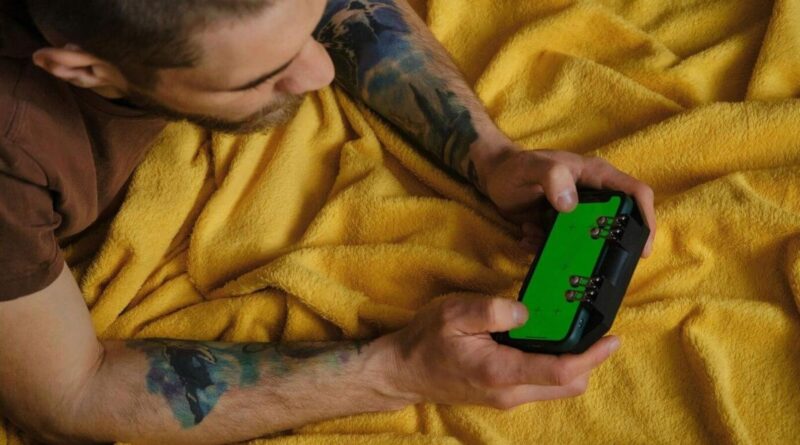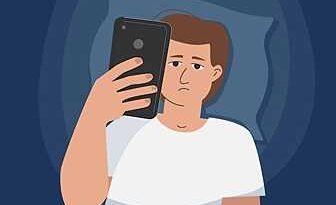Gaming Addiction: When Playing Becomes a Problem
Gaming can be an enjoyable activity that provides relaxation, entertainment, and even social connection. However, when gaming begins to dominate a person’s life and disrupts their daily responsibilities, it can lead to gaming addiction. This condition, recognized as a behavioral disorder by the World Health Organization (WHO), affects people of all ages and has significant physical, emotional, and social consequences.
In this blog, we’ll discuss what gaming addiction is, its impact, and how experts at ThePsychowellness help individuals overcome this issue.
What is Gaming Addiction?
Gaming addiction, also referred to as Internet Gaming Disorder (IGD), involves an uncontrollable urge to play video games despite the negative effects it may have on one’s life. This condition manifests through a set of symptoms, including:
- Preoccupation: Thinking about gaming all the time, even when you’re not playing.
- Neglecting Responsibilities: Prioritizing gaming over school, work, or family time.
- Escalation: Increasing gaming hours over time to achieve the same level of satisfaction.
- Withdrawal Symptoms: Feeling anxious or irritable when unable to play.
- Negative Impacts: Experiencing deteriorating relationships, academic struggles, or health issues.
How Gaming Addiction Impacts Life
Gaming addiction can severely impact different aspects of life, including:
- Physical Health: Excessive gaming can lead to sleep disorders, poor posture, eye strain, and repetitive stress injuries.
- Mental Health: Prolonged gaming is linked to depression, anxiety, and low self-esteem.
- Social Isolation: Many individuals withdraw from friends and family, replacing real-life interactions with virtual ones.
- Academic and Work Performance: Gaming addicts often struggle to meet deadlines or maintain focus, leading to lower productivity and academic setbacks.
Therapy for Gaming Addiction
The good news is that gaming addiction is treatable. At ThePsychowellness a range of therapeutic interventions is available to address gaming addiction, such as:
- Cognitive Behavioral Therapy (CBT): This therapy identifies and modifies unhealthy thought patterns that lead to compulsive gaming.
- Behavioral Therapy: Encourages clients to develop healthier routines and reduce their gaming time gradually.
- Mindfulness and Relaxation Techniques: Helps manage stress and anxiety while reducing dependency on gaming as a coping mechanism.
- Family Counseling: Equips families to set boundaries and support the individual’s recovery journey.
Assessing Gaming Addiction
If you suspect that you or a loved one may be addicted to gaming, specialized assessments can provide clarity. Tools like the Internet Gaming Disorder Scale or psychological evaluations conducted by top psychologists at ThePsychowellness and TalktoAngel can determine the severity of the problem and guide the treatment plan.
Experts at ThePsychowellness Center
ThePsychowellness is renowned for its team of experienced professionals who specialize in addiction therapy. Here’s an introduction to the experts who can help individuals struggling with gaming addiction:
- Dr. R. K. Suri: A senior clinical psychologist with decades of experience in treating addiction. Dr. Suri’s expertise in neuropsychology ensures an in-depth approach to managing gaming addiction.
- Mr. Utkarsh Yadav: A skilled counseling psychologist, Mr. Yadav focuses on helping clients build better habits and manage the stress linked to gaming addiction.
- Ms. Gurleen Kaur: Well-known for her patient-focused technique, Ms. Kaur assists individuals in finding balance and addressing emotional triggers for gaming.
- Ms. Mansi: A child psychologist with a special interest in helping young gamers, Ms. Mansi works closely with parents to create supportive recovery environments.
- Ms. Dhristi Gakhar: Specializing in psychometric assessments, Ms. Gakhar provides insights into underlying issues and crafts tailored therapeutic plans.
- Ms. Sangeeta Pal: A clinical psychologist adept in stress management and behavioral therapies, Ms. Pal helps individuals regain control over their lives.
- Ms. Riya Rathi: With expertise in mindfulness techniques, Ms. Rathi empowers clients to handle gaming-related stress effectively.
- Ms. Sakshi Dhankhar: Focused on young adults, Ms. Dhankhar helps clients overcome compulsive gaming and establish healthier lifestyles.
- Ms. Tanu Sangwan: A cognitive therapist skilled in reshaping negative thought patterns that contribute to addiction.
- Ms. Srishti Jain: Passionate about personal growth, Ms. Jain supports clients in understanding the emotional factors driving their gaming addiction.
How The Psychowellness and TalktoAngel Can Help
The ThePsychowellness and TalktoAngel platforms offer both in-person counseling and online counseling, ensuring that help is accessible no matter where you are. Their approach includes:
- Comprehensive Assessments: To determine the extent of the addiction and its underlying causes.
- Personalized Therapy: individual treatment plans to meet individual needs and challenges.
- Holistic Support: Incorporating behavioral, emotional, and social aspects to provide long-lasting solutions.
Conclusion
Gaming addiction, if left unaddressed, can spiral into more severe mental health and lifestyle challenges. Identifying the issue and getting the best psychologist‘s help is the first step. ThePsychowellness and TalktoAngel are equipped with the expertise and resources to guide individuals toward a healthier, more balanced life.
If you or a loved one is struggling with gaming addiction, don’t hesitate to reach out. Expert therapists are ready to help you break free and rediscover life beyond the screen.
References
- World Health Organization. (2022). Gaming disorder. Retrieved from WHO website.
- American Psychological Association. (2023). Understanding Internet Gaming Disorder.
- Psychowellness Center. (2024). Services for addiction therapy.
- TalktoAngel. (2024). Online therapy for behavioral addiction.




